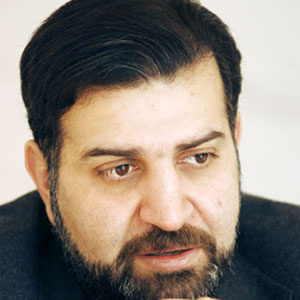A Tale of Two Cities; Tehran and Washington

A brief view at ups and downs of Tehran-Washington ties in the last three decades reveals a fact: that changes in the traditional literature and mechanisms of foreign diplomacy can’t break a new ground.
We have to answer some critical questions if we want to analyze Tehran-Washington relations: is diplomacy enough for solution of problems? Do the negotiators have the necessary power and self-confidence to settle the disputes? Do the problems merely concern bilateral matters or they are rooted in regional and international issues? Are third parties interested in solution of Iran-US problems? Or they seek their benefits in continuation of the strained relations?
Are the two countries ready to start talks firstly on bilateral issues? Or are there any other conditions? To what extent do domestic considerations influence both countries’ approach towards solution of the problems? How has United States policy towards Iran changed during the presidency of Carter, Reagan, Bush Sr., Clinton and Bush Jr.?
Can United States decisions in the past 60 years be regarded as a yardstick for its current polices? And can they be used to predict future relations? Can we regard shifts in United States’ policy towards Iran merely a shift in tactic not a shift in strategy? Why has United States adopted a dual behavior in Afghanistan and Iraq? Why have the Republicans and Democrats’ various approaches to topple the Islamic Republic of Iran proved unsuccessful? How can these plans influence the future of bilateral ties?
In their memory, Iranians have a long record of America’s behaviors, each a sad story. These include America’s presence to set balance of power between Britain and Russia in the early 1900s, its role in withdrawal of USSR’s troops from Iran and later in nationalization of oil industry, the 1953 coup against Dr. Mosaddeq, its presence in political, military, security and economic sections from 1953 to 1979, supporting Shah’s crackdowns, military attack that ended in Tabas, blocking Iran’s assets in United States, military, intelligence and political backing of Saddam Hussein in the lengthy war he imposed on Iran, attacking Iran’s oil platforms in the Persian Gulf, shooting down an Iranian Airbus by the Vincennes Navy and killing 290 civilians passengers, downplaying Iran’s efforts in Lebanon to release Western hostages, supporting anti-regime Iranians in America and Iraq, disregarding Iran’s cooperation in liberating Kabul, in the democratization process of Iraq and establishment of a new political order.
On the other hand, there are United States’ claims against Iran that have uttered continuously. These claims concern Iran’s [unacceptable] role in Middle East peace process, war against terrorism and drug traffic, WMDs and human rights. But the dual behavior of Americans invalidates their claims.
Sporadically we have heard other voices from within the political system of United States. Democrats, conservatives and neo-cons each advocate the same policy with different modes and phrasings. They do not differ in strategy but in tactics and style.
Both Iran and United States believe that they have missed precious chances. However, due to internal or external pressures they avoid confession. But the truth is that Iran and United States have far more capacities to solve regional and international problems.

